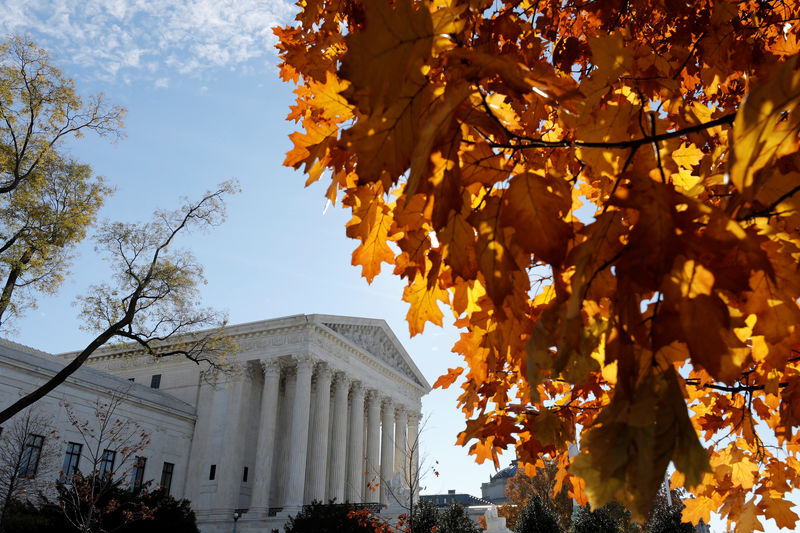By Lawrence Hurley
WASHINGTON (Reuters) - The U.S. Supreme Court on Friday added a second case to its docket on a contentious issue that could have major consequences for American elections, agreeing to decide whether Democratic lawmakers in Maryland unlawfully drew a congressional district in a way that would prevent a Republican candidate from winning.
The court's agreement to take up an appeal by Republican voters in Maryland regarding the U.S. House of Representatives district came two months after the justices heard arguments in a high-profile challenge by Democratic voters to Republican-drawn state legislative districts in Wisconsin.
Both cases target a practice known as partisan gerrymandering that aims to entrench one party in power and that critics have called a distortion of the democratic process. The justices have not yet issued a ruling in the Wisconsin case.
Each case presents a different legal theory as to why limits should be placed on partisan gerrymandering, and the court's decision to take up a second case on the issue hints that at least some of the nine justices are seriously considering cracking down on it.
Gerrymandering, a practice dating back two centuries in American politics, involves manipulating boundaries of legislative districts to benefit one party and diminish another. Legislative districts around the United States are redrawn every decade after the national census to reflect population changes. The "redistricting" in most states is done by the party in power though some states assign the task to independent commissions.
The Supreme Court for decades has been willing to invalidate state electoral maps on the grounds of racial discrimination but never those drawn simply for partisan advantage.
In the Maryland case, the Republican voters targeting the Democratic-drawn electoral map appealed a 2-1 ruling in August by a panel of three federal judges sitting in Baltimore rejecting their challenge.
Maryland's sixth congressional district, the focus of the case, was previously held by a Republican and now is held by Democrat John Delaney.
When the Supreme Court heard arguments in the Wisconsin case on Oct. 3, the justices appeared closely divided, with conservative Justice Anthony Kennedy likely to cast the deciding vote.
The Republican challengers in Maryland take aim at a single electoral district, not the whole state as in the Wisconsin case. They argue that the district should be struck down because it was drawn by Democrats as a form of retaliation on the basis of past party affiliation based on the Constitution's guaranteed rights of free association and free speech.
The challengers in the Wisconsin case argued that the Republican electoral map violated Democratic voters' rights to equal protection under the law as well as free speech and association.
In the Wisconsin case, the legal argument advanced by the Democratic challengers was that an electoral map would be unlawful if the intent was to discriminate against minority party voters, the map had a sizable effect in accomplishing that goal and that there was no other justification for the map.
The theory was based in part on measuring the number of "wasted" votes in each district cast for a losing candidate and comparing each party's total wasted votes on a statewide basis. The results, plaintiffs said, show whether one party's votes are more likely to be wasted than the other party's, which would show evidence of unconstitutional extreme partisan gerrymandering.
